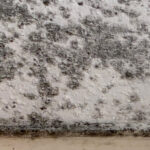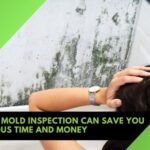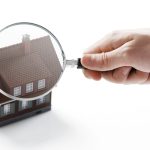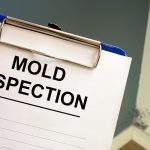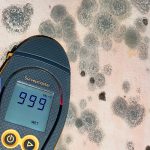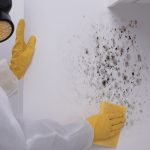Have You Found Mold In Your Home And Need Some Advice?
It has been well documented that mold exposure can cause health issues, mostly affecting, babies, toddlers, the elderly or those with respiratory issues.
Typically, the majority of people suffer symptoms similar to the “cold or flu”. Often the symptoms go away after they leave they leave the environment.
For more information on mold exposure and associated health issues, you can dig deep by checking out the information from the Center for Disease Control or Mayo Clinic.
Mold Insight
Now that we know the potential dangers linked to mold exposure, it’s time to get down to the business of finding a mold inspector that can give you the answers you need.
So Why Get A Mold Inspection?
The main objective of the mold inspection is to find the source of the issue (if there is one) and exactly what to do about it.
You absolutely need to know if your inspector is capable of doing so.
In the article, How to Hire a Mold Remediation Company, you’ll see some similar strategies for finding the best mold remediation contractor.
Now let’s get into the 11 tips to hiring a great mold inspector
Tip #1: The Initial Phone Call And Price
From the very beginning of the call you want to be able to explain your situation. The inspector should also ask you a number of questions to determine what is going on to best help you.
There are times when an inspection is not needed, and they can easily advise you over the phone.
This is where you want to establish how open the inspector is for taking the time to understand your concern(s).
Ask if he/she is willing to discuss your problem over the phone and answer any questions prior to booking the inspection. This is also an opportunity to find out how well the person on the other line communicates with you.
Effective communication skills are vital for mold inspectors to have. You need to understand the problems and potential implications.
Inspectors use a number of different ways to arrive at a price.
Expect to pay experienced, detail-oriented inspectors who provide customized reporting and solutions the most.
Essentially, mold inspectors are paid for their time, experience, reporting, and mold sampling when required.
Some mold inspectors will give to a flat rate for their time. Others will charge according to the size of the home.
Air quality testing & surface testing will also be a factor. In addition, the detail of the mold inspection report will also be a consideration.
Inspection fees can run from $400 – $1000+ depending on the experience and services provided.
Tip #2: Proper Training
Before you go ahead and hire a mold inspector, you need to know that this person is qualified to help you, as mold industry is not regulated the same way the home inspection industry is.
Fortunately, there are several institutions out there where the inspector can acquire the appropriate training to do the job properly.
In my opinion, your inspector should have a basic understanding of building envelop science, combined with certifications in mold inspection & infrared technology. (These courses require a serious investment in time and money)
The most qualified inspectors have a higher-level certification in water damage restoration, ideally from the IICRC (institute of Cleaning, Restoration and Certification).
Tip #3: Work Experience
You want to find out first if the mold inspector does mold inspections part time of full time. Ideally, you want to find someone who is dedicated to mold full time.
Next, you need to know out how long they have been performing mold inspections. As with anything, the more experience, the better.
Tip #4: Mold Inspection Procedures
Experienced and well-trained mold inspectors will have a checklist and or routine to follow. Your mold inspector should explain specifically what their protocol includes to identify if and where a mold issue exists.
Priority should be placed on immediate issue(s). If your mold related issue is a mystery, a proper routine will help them identify this.
Some of the standard procedures should include the following:
- Checking accessible interior areas of the home for leaks and water staining.
- Check for leaks and water damage in the bathroom, testing the ventilation, the shower walls for mold, the caulking, the walls and ceilings and floors by the toilets, showers and tubs.
- Checking the kitchen below cupboards for leaks/water damage, the caulking around the sink and the floors by the sink, dishwasher and refrigerator.
- Looking for signs of leakage or mold by the washing machines. If possible, looking at the washer hose connections.
- Note: Attic, crawlspace & exterior inspections are not usually included within a standard mold inspection, unless otherwise stated.
Tip #5: Alliances
It is important for mold inspectors to have other professionals to help you with the mold removal process. Finding the right mold removal company can take a lot of time and effort, so the more help you can get with this part of the process, the better.
All established mold inspectors have strong business relationships with other great mold removal companies. Ideally, your mold inspector will have at least two companies to refer to you.
Although a good recommendation will save you a lot of time and effort, you will still need to qualify them to ensure the companies fit well for you and your family.
Tip #6: Mold Inspection Limitations
It is the responsibility for the inspector to explain to you what they do, and do not cover. The main reason for discussing limitations is to establish clear expectations upfront so there won’t be any surprises later. For example, I do not open up walls or move heavy furniture.
The inspector should let you know their limitations up front, and within their contract, not after the inspection. Ask your inspector about this if they do not tell you.
Tip #7: Tools and Equipment
Mold inspectors use a number of different tools to help them diagnose and confirm their findings. Some tools of the trade include:
- Moisture Meter
- Flashlight
- Hygrometer
- Infrared Camera
- Air Quality Pump, Cassettes, and Swabs
Advanced training is needed for air quality testing and the infrared camera.
Tip #8: Air Quality Testing, Tape & Swab Sampling
Essentially, mold testing involves taking samples from either the air or physical locations of the home for the presence of mold.
Once the samples have been taken, they will be sent to a lab for analysis. Following this, the lab will produce a report of the findings.
Note: Many inspectors will insist on taking air quality or physical (tape and swab samples) before, or in place of doing an inspection. This is not standard practice, nor it is always needed.
However, air sampling can be done without an inspection as a clearance test, to ensure that air quality is safe following a mold removal job, when the client insists on an air quality test for peace of mind or for a court order.
Under normal circumstances, and based on my experience, mold sampling is best only after a visual inspection has been completed, not before.
Sampling should be discouraged when physical mold is present. In this case it just makes sense to remove the mold, as there is no need to spend the extra money.
Air samples determine what the spore counts are at the time of sampling, and the species.
When air samples are taken, there should be a minimum of 3 samples taken. One collected outside the home as a base sample, one in an area of concern inside the home and, the last sample in an area where the risk “seems” less problematic. Additional samples can be taken as needed.
Samples will help determine if there is an unsafe air quality issue of a given area, yet, will not pin point specifically where the concern is.
Ok, the last point about sampling. Some inspectors will claim that you can get your samples verified immediately because they can test and analyze the samples in their office or truck, etc.
However, the only way to know for sure if the test is truly authentic is for an accredited 3rd party lab to properly analyze and confirm the results of the tests.
All samples should be analyzed in a controlled environment, not the back of someone’s van. Besides, only samples from a lab will stand up in court.
Tip #9: Reputation & References
Look for reviews online to see if there have been any complaints. Seeing a number of good reviews on a few different sites (Google +, Yelp & HomeStars) is good, as it shows consistency.
Normally companies will refrain from giving you references to call from their clients unless you book with them, but it is worth a shot to ask.
Tip #10: Reporting & Turnaround Time
Ask the inspector what type of report(s) will be provided. It is not unusual to get a verbal summary, especially only if the inspection does not lead to any issues of concern.
It is important to check the contract and or make an agreement as to what types of report you will be getting.
For full investigations you should be getting a verbal & written report. Nowadays, most mold inspectors use software programs to generate their reports.
Tip #11: The X-Factor
You want to ensure that the inspector has all of the resources to provide you with the best information possible. This shows true dedication and professionalism.
You want to avoid moonlighters, handy men, or the part time mold inspectors.
Ideally, your best option is to hire a mold inspector who has dedicated his full commitment to the business of helping people understand the implications of mold and water damage, while providing realistic solutions for dealing with such issues.
Summary Questions To Ask A Mold Inspector
- How long have you been practicing mold inspections?
- What is the cost of a mold inspection?
- How do you breakdown the price?
- What kind of mold inspection training have you received?
- Do you belong to any professional associations?
- Do you hold any certifications?
- How do you go about conducting a mold inspection? Do you follow a set of procedures?
- Can you refer me to a good mold removal company?
- What are the limitations of your inspection (what cannot be done by the inspector) ?
- Do you have a mold inspection contract?
- Do you offer mold testing?
- Do you use a mold lab to analyze the mold samples?
- How long will the lab report take?
- May I call you after the inspection for follow up questions?
- Will you explain the results from the lab report?
- What kind of report is included with the inspection? Verbal, writing?
- Do you have any references for me to call?
- Will you provide recommendations and next steps after the inspection?
By taking just a few moments to ask your mold inspector some important questions, you will be able to find the right person for the job, while saving money and protecting your family.

